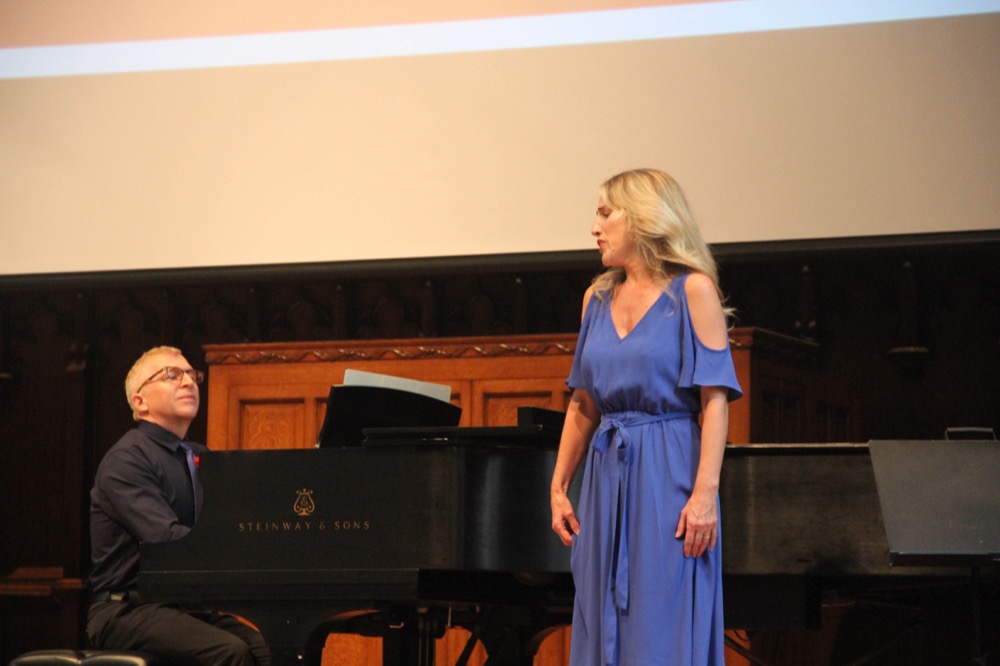Scene
Reflections on ‘Reflections:’ Unintentional connections between recent events
On Wednesday evening, the University sponsored an event called “Reflections: Unity, Social Justice and Peace.” As I took my seat among the small crowd in Graham Chapel, I did some reflecting of my own.
Although the event itself was organized in response to the Aug. 12 “Unite the Right” rally and resulting violence in Charlottesville, Va., Chancellor Mark Wrighton began his opening remarks by expressing sympathy and imploring support for the communities affected by Hurricane Harvey.
 Hanusia Higgins | Student Life
Hanusia Higgins | Student Life Singers perform at the “Reflections: Unity, Social Justice and Peace” event on Wednesday, Aug. 30. The event was held in Graham Chapel, and all Washington University students were invited to attend the community gathering in week one of class.
This brief remark may have been mainly obligatory—a part of the job description for any high-ranking university official at a public event is addressing current issues. But it also highlighted a clear parallel between recent, devastating events and how our society, and our University community, reacts to them.
At first glance, the rally in Charlottesville and the hurricane in Texas may not seem too similar: One is a natural disaster, a whirlwind of water, and the other was caused by humans, wielding Tiki torches and shouting hateful chants. But both are violent events, leaving destruction and body counts in their wakes.
And both Hurricane Harvey and the violence in Charlottesville resulted from long-simmering issues that have exploded to a boiling point in the last month.
According to the U.S. Global Change Research Program, the recent uptick in the frequency and severity of extreme weather events, including hurricanes, has been linked to the increase in atmospheric carbon caused by humans’ carbon-emitting activities.
Similarly, racism in the United States (and, of course, the world) has existed since the nation’s inception. Despite some claims of a “post-racial” America when we elected our first black president, racism and bigotry—rooted in white supremacy—continue to be major societal problems in America. Yet, they are topics often avoided, until they become unavoidable. Notably, hate crimes in U.S. cities have significantly increased in the past year. This rise correlates with the campaign and election of President Donald Trump, who was supported in part by the same white supremacists and neo-Nazis who rallied in Charlottesville.
The personal reflections shared by members of the Wash. U. community at this event were uplifting—but they must be followed up by activity, not complacency. The event’s program included several calls to action, such as suggestions to post on Instagram or Twitter “something that gives you hope and inspiration for unity, social justice or peace.” These proposals are nice; they are also approximately equivalent to installing one low-flow showerhead or sharing an article about deforestation on Facebook. Small everyday actions like these are doubtlessly important, as are the politically correct, University-sanctioned events like “Reflections.” Big, drastic change is critical, too. Hybrid cars are great, but my Toyota Prius on its own won’t stop the persistence of anthropogenic climate change and its consequences. Neither will community reflections alone, as well-intentioned and truly inspiring as they may be, negate or prevent another incident like the one in Charlottesville. We must address the percolating problems that underlie these visibly shocking events.
